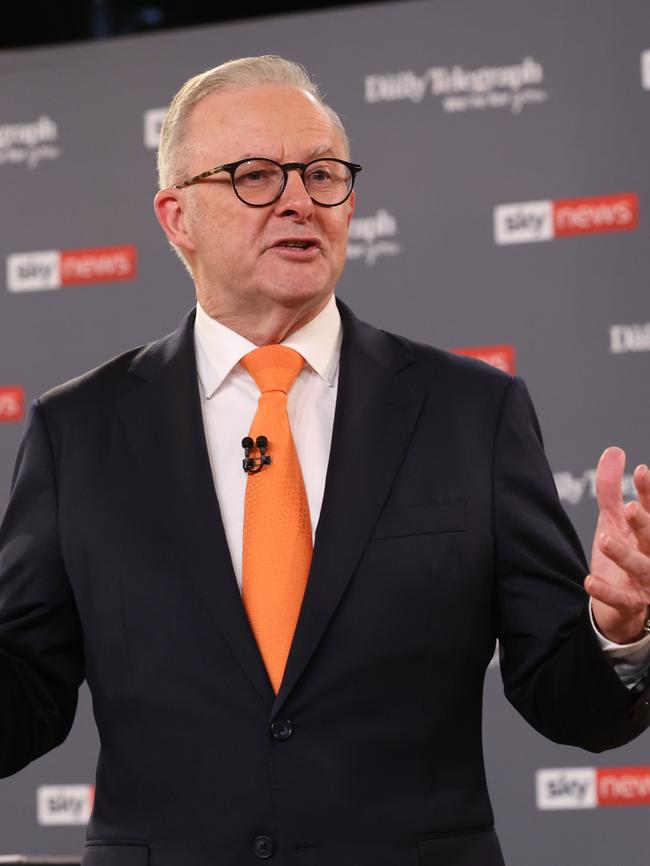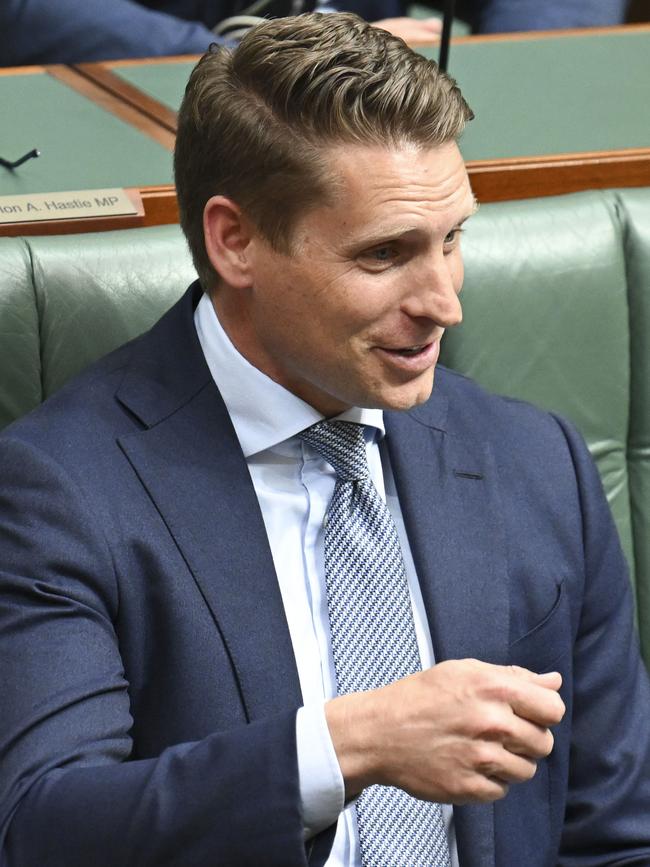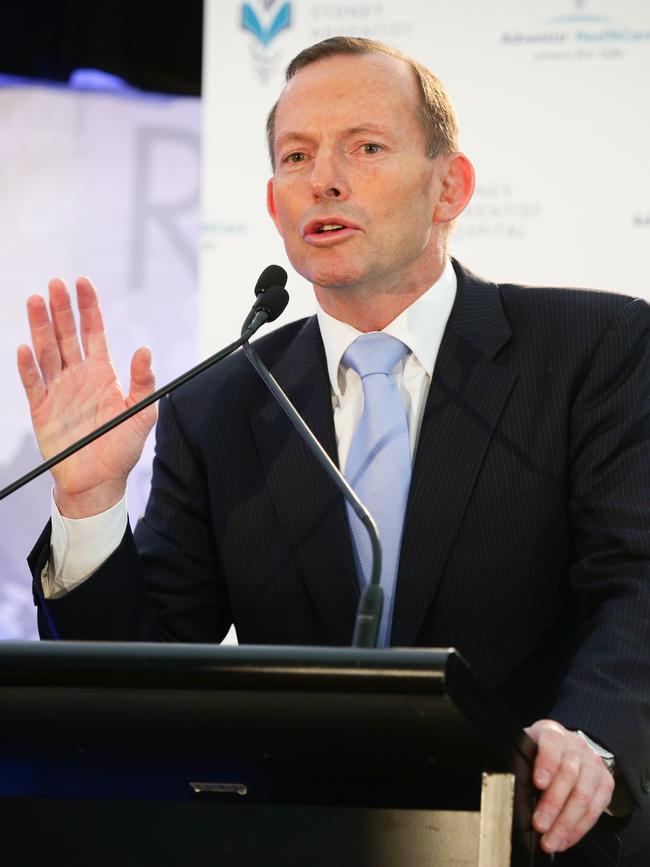
Is this the worst election campaign we’ve ever had? A government that plainly deserves to lose against an opposition that plainly doesn’t deserve to win?
I feel like WH Auden sitting in a bar at the end of the 1930s: “As the clever hopes expire of a low, dishonest decade.”
Out in the real world, terrible things are happening. Australia’s circumstances are being transformed in fundamental and dangerous ways: the relentless militarisation of China, the downgrading of alliances by the US, the threatened implosion of the global trading system. Internally we face chronic problems that could easily, and soon, become crises – chronic debt and deficit; woeful productivity; no credible path to hi-tech; an incentive-sapping tax system; every discouragement to invest; crippling energy costs; ludicrous government and union costs; increasing bureaucracy, complexity and difficulty in doing business.
Now comes another report showing a calamitous collapse in the standards of basic mathematics taught at schools (and this after eye-watering sums of money spent on education).

Our bizarre election campaign exists in a kind of parallel universe. It embodies crude, fiscally irresponsible electoral bribery combined with focus group-driven, drooling nonsense about whether we can “work” three days a week from home or four, or punishing supermarkets for making profits.
Here are two once proud teams playing the worst game ever seen to decide the wooden spoon.
Of the two campaigns, Albanese’s has been by far the slicker, and also the more dishonest. A height of extreme absurdity was reached by Defence Minister, Richard Marles, demanding shadow defence minister Andrew Hastie, a former SAS officer, stand down because seven years ago Hastie commented that: “The DNA of a close combat unit is best preserved if it is exclusively male.”
The idea of Marles demeaning Hastie’s fitness to serve, after Hastie repeatedly put his life on the line for Australia in Afghanistan, is contemptible. It helps, I suppose, to distract from Labor’s monumental failure in defence, such that our military capabilities are weaker now than when Albanese came to office.
But the Liberals enabled the Marles attack by disendorsing a Liberal candidate who had also opposed the inclusion of women in army close combat roles. The Liberals now say there were other problems with that candidate. But to disendorse him ostensibly for opposing women in army close combat roles is exactly the sort of foolish, cowardly avoidance of controversy that drives voters to fringe parties.


For everyone knows in reality that Hastie is right. It’s absurd to suggest that women should serve in close combat roles in infantry or special forces. It’s against common sense, against biological reality and it’s also wrong in principle.
Women serve courageously in many other combat roles and are welcomed in them; occupations such as fighter aircraft pilots, surface warfare officers on ships, submariners and many other such jobs. Women are as courageous as men, and in these roles perfectly competent. But close combat is entirely different. People should read the medal citations for our VC winners to see how gruesome, bloody and violent it is. Moreover, the physical standards for such units are derived from what the strongest, fittest couple of per cent of men can possibly achieve. To admit women in any numbers means radically diminishing those standards and thus compromising combat capability.
Anyone who thinks women should serve in close combat units such as the SAS should explain why we don’t have integrated teams – men and women in the same team – in rugby league or Aussie rules. Or why we don’t have integrated boxing rings. It’s just ideology versus reality, yet again.
None of this is even to approach the deeper questions of equality but differences of men and women, and the need to educate men in the obligations of special courtesy and protection they owe to women. Very few armies have women in close combat roles. The Israelis tried it, and reversed course.
However, I may be wrong about all this. Good people can disagree. But by fixing on this issue as the public reason to disendorse a candidate, the Liberals declared such perfectly mainstream opinions effectively forbidden. They made the Marles attack inevitable. It’s one thing to avoid needless culture wars. It’s another to have no sense of your own identity. No wonder the One Nation vote has risen as the Coalition’s vote has sagged, for there’s very little policy difference between government and opposition in this depressingly low-rent campaign.

Marles also accused Hastie of being in hiding. That’s unfair, but it’s astonishing that a failing opposition has made no national use of Hastie. What’s going on? This is a weak opposition frontbench (matched against a pretty weak cabinet, it must be said) and the opposition brains trust has decided to hide what talent and substance it has.
There’s the continued mystery of why we don’t have an opposition defence policy yet. Shadow cabinet has considered various defence spending targets as a percentage of GDP – 2.25 per cent, 2.5 per cent, 2.75 per cent and 3 per cent, achieved over different time frames.
It’s internally divided, partly because some shadow ministers believe Defence spends money too inefficiently to be given any more. Which is surely about the most defeatist, doleful and impotent response to a national crisis ever recorded in the annals of Western politics.
If the opposition believes defence is important, it should have been campaigning on its policy weeks ago. Releasing it at one minute to midnight shows you don’t really believe in it.
The opposition has been tactically a mess. Why introduce reforms to work from home if you’re going to run away from them at the first whiff of grapeshot?
In a campaign where Dutton is trailing, desperately struggling to communicate any message at all, why hold the campaign launch, replete with a new set of electoral bribes, on the same day Albanese holds his launch with a competing set of electoral bribes?

The last time the Liberals won from opposition was in 2013. Tony Abbott had strong messages, communicated in clear, headline-like slogans: stop the boats; scrap the tax; fix the budget. All memorable lines that told the electorate what Abbott planned to do. He won a landslide victory. Can anyone nominate a single memorable line, a single moment of cut-through, from the opposition in this campaign?
Our external environment is changing dangerously and profoundly, the defence challenge is immense but doable if we’re serious about it. Yet as of writing there is no intention to hold Foreign Minister versus shadow minister or Defence Minister versus shadow minister debates. It’s easy to see why the government, with its dismal record, wouldn’t want such debates. But why isn’t the opposition demanding them? These issues may not figure in focus groups, but they’re hugely consequential for the national interest.
The lack of such debates is not the least way the nation is being failed by the faux-clever hopes of this low, dishonest campaign.





